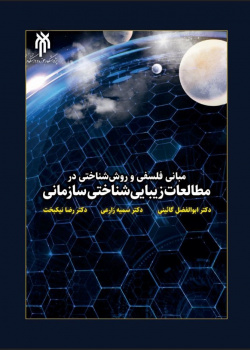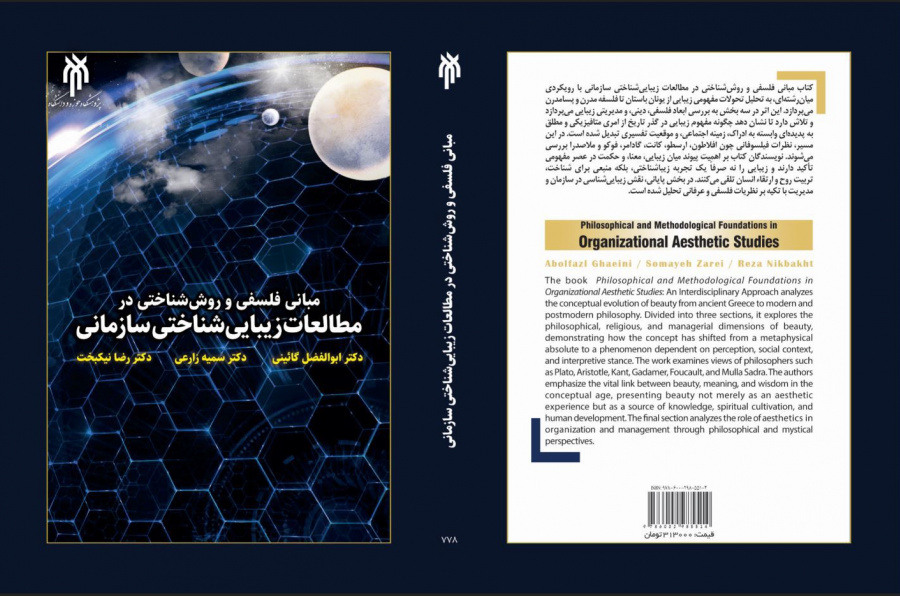



مبانی فلسفی و روششناختی در مطالعات زیباییشناختی سازمانی
Philosophical and Methodological Foundations in Organizational Aesthetic Studies
کتاب مبانی فلسفی و روششناختی در مطالعات زیباییشناختی سازمانی با رویکردی میانرشتهای، به تحلیل تحولات مفهومی زیبایی از یونان باستان تا فلسفه مدرن و پسامدرن میپردازد. این اثر در سه بخش به بررسی ابعاد فلسفی، دینی، و مدیریتی زیبایی میپردازد و تلاش دارد تا نشان دهد چگونه مفهوم زیبایی در گذر تاریخ از امری متافیزیکی و مطلق به پدیدهای وابسته به ادراک، زمینه اجتماعی، و موقعیت تفسیری تبدیل شده است. در این مسیر، نظرات فیلسوفانی چون افلاطون، ارسطو، کانت، گادامر، فوکو و ملاصدرا بررسی میشوند. نویسندگان کتاب بر اهمیت پیوند میان زیبایی، معنا، و حکمت در عصر مفهومی تأکید دارند و زیبایی را نه صرفاً یک تجربه زیباشناختی، بلکه منبعی برای شناخت، تربیت روح و ارتقاء انسان تلقی میکنند. در بخش پایانی، نقش زیباییشناسی در سازمان و مدیریت با تکیه بر نظریات فلسفی و عرفانی تحلیل شده است.
Abolfazl Ghaeini / Somayeh Zarei / Reza Nikbakht
The book Philosophical and Methodological Foundations in Organizational Aesthetic Studies: An Interdisciplinary Approach analyzes the conceptual evolution of beauty from ancient Greece to modern and postmodern philosophy. Divided into three sections, it explores the philosophical, religious, and managerial dimensions of beauty, demonstrating how the concept has shifted from a metaphysical absolute to a phenomenon dependent on perception, social context, and interpretive stance. The work examines views of philosophers such as Plato, Aristotle, Kant, Gadamer, Foucault, and Mulla Sadra. The authors emphasize the vital link between beauty, meaning, and wisdom in the conceptual age, presenting beauty not merely as an aesthetic experience but as a source of knowledge, spiritual cultivation, and human development. The final section analyzes the role of aesthetics in organization and management through philosophical and mystical perspectives.
